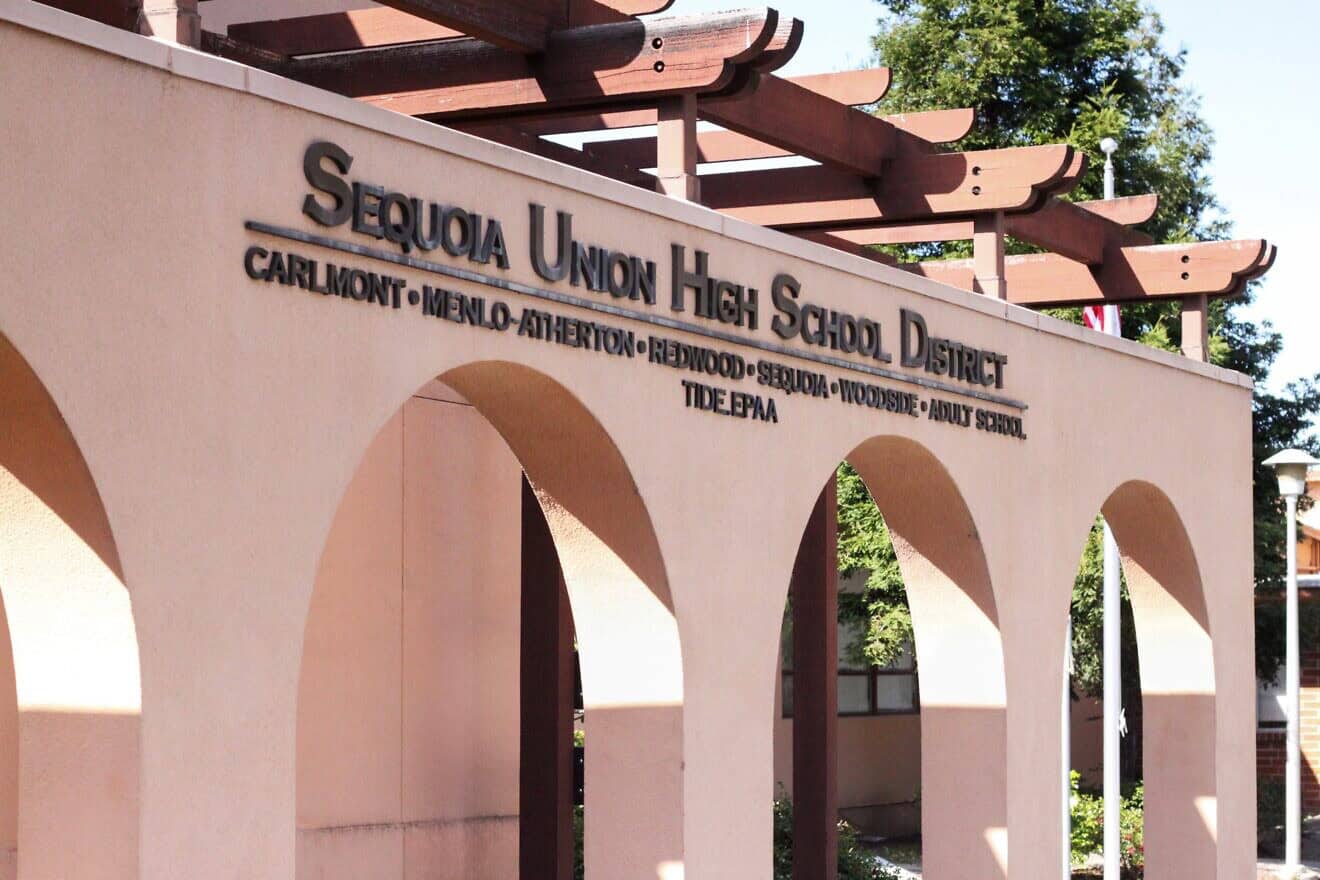The epicenter of the fight over ethnic studies
In practice, the “liberated” version dominating today’s classrooms pushes themes like white supremacy, privilege and resistance.
By Kendall Tietz
JNS
Aug 22, 2025
The issue of ethnic studies has long stirred controversy, especially in the Bay Area, where debates over how it’s taught have become a political battleground. That fight came to a head in the Sequoia Union High School District (SUHSD), after a post-Oct. 7, lesson on the Israel-Palestine conflict ignited outrage among Jewish parents.
In November 2023, parents accused the lesson, delivered in ethnic-studies classes, as biased and antisemitic. The backlash reached a boiling point at a January 2024 school board meeting. Just months later, filmmaker Eli Steele—the son of civil-rights scholar Shelby Steele—released “Killing America,” a short documentary capturing the turmoil at SUHSD.
Steele’s film delves into the district’s ethnic-studies program, rising antisemitism in Bay Area schools and SUHSD’s broader reforms, including the elimination of honors classes in the name of “equity.” SUHSD encompasses both affluent areas like Atherton and underserved communities like East Palo Alto. The district’s equity push began in 2022 with the phased removal of honors classes—an effort to address disparities in academic access and achievement, particularly at schools like Menlo-Atherton High School (MAHS).
MAHS became ground zero for the controversy. SUHSD teacher Chloe Gentile-Montgomery, a proponent of the Liberated Ethnic Studies (LES) movement, drew fire for her post-Oct. 7 lesson. Portions were later published in the M-A Chronicle in December, prompting a petition and a detailed analysis from parents who called out antisemitic content and factual inaccuracies.
The Chronicle then accused Steele of copyright infringement for including a public board meeting clip in his film and persuaded YouTube to take it down. Steele called the takedown an attempt to silence criticism and maintained his use of the clip was protected under fair use. The paper ultimately dropped legal threats, but Steele claims financial losse
Defending Education filed a California Public Records Act (CPRA) request to determine whether public resources were used to suppress dissent. Records showed SUHSD officials consulted legal counsel about the film. The district then denied full access to the documents, prompting Defending Ed to file a lawsuit in June 2024. SUHSD argued it was defending students’ First Amendment rights.
Parent Diana Blum, whose two children graduated from SUHSD, says ethnic studies is only part of a larger trend.
“This goes way beyond,” she said. “Schools have veered from their mission to educate—kids aren’t being taught to think, read or write. Instead, it’s about activism, social justice and undefined terms like ‘belonging.’ And when parents push back, we get labeled as white supremacists.”
SUHSD implemented ethnic studies as a graduation requirement starting with the class of 2025—two years before California’s 2021 state mandate (AB 101) was set to take effect. But in May 2024, Gov. Gavin Newsom’s office declined to fund the mandate, leaving it up to local districts.
In theory, ethnic studies is meant to foster cultural understanding and tolerance. In practice, the “liberated” version dominating today’s classrooms pushes themes like white supremacy, privilege and resistance. It often discourages viewpoint diversity and has been linked to antisemitism. Defending Education describes it as critical race theory by another name.
California’s 2021 ethnic-studies framework excluded earlier, more radical drafts over concerns of bias. Yet some districts adopted curriculum from the Liberated Ethnic Studies Model Curriculum Consortium (LESMCC), a group of activist educators pushing a more ideological version. Though not officially endorsed by the state, LESMCC’s materials have been at the center of multiple lawsuits.
One LESMCC lesson plan, for instance, explicitly encourages students to “make public comments at their school board meetings with recommendations for racial integration policies to build new possibilities for resisting white supremacist schooling structures.”
In practice, Jewish students are often singled out. Zionists and Jews are portrayed as white or “white-adjacent” colonizers. At SUHSD, Gentile-Montgomery’s slides included a claim that “Israel is a country created on Palestinian land. The United Nations says this is illegal.” One slide minimized the Holocaust to a single sentence. Another depicted a puppet master to illustrate “dominant narratives,” which parents said echoed classic antisemitic imagery.
A map shown in class suggested Palestine was an independent state in 1946. Hamas was described simply as “a group from Gaza, Palestine.” Sources cited included TRT World, which parents pointed out is the state media of anti-Israel Turkey.
The district didn’t release a formal statement about antisemitism until six weeks after Oct. 7, during “United Against Hate” week.
Facing intense criticism, Gentile-Montgomery took a leave of absence, claiming that her lessons were taken out of context and that she was subjected to a “public lynching.” In April 2024, she sued SUHSD for discrimination and retaliation.
Meanwhile, the advocacy group Jewish California urged the district to pause implementation of its ethnic-studies requirement. The board declined. It also voted against restoring honors courses for the 2025-26 school year and postponed any vote on the future of ethnic studies.
The group promotes Constructive Ethnic Studies (CES), which presents multiple viewpoints, in contrast to LES, which they say promotes Marxist ideology and racial and antisemitic bias.
“Ethnic Studies programs are divisive and biased,” their petition reads. “Our schools should bring students together—not drive them apart.”
Blum remains skeptical that change is coming.
“I feel like the school thinks it can get away with anything—and it has,” she said. “Even lawsuits don’t faze them. It’s not their money. It’s taxpayer money.”

No comments:
Post a Comment